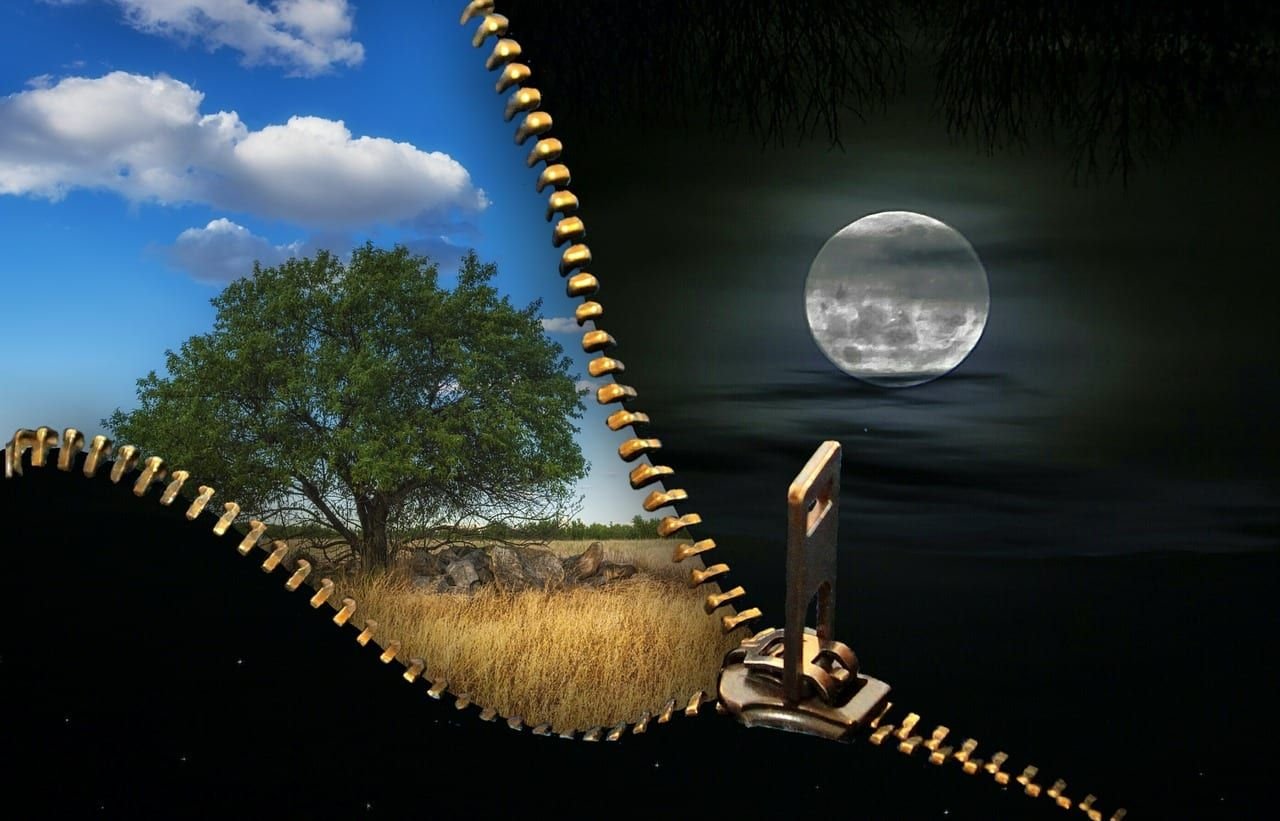In The Name of Allah, The Most Merciful, The Bestower of Mercy.
A Warning Against The Pursuit of Leadership
Abu Hurairah, may Allah be pleased with him, reported that while the Prophet, peace and blessings of Allah be upon him, was saying something in a gathering, a Bedouin came and asked him, “When would the Hour (Day of Judgement) take place?” Allah’s Messenger continued his talk, so some people said that Allah’s Messenger heard the question, but did not like what that Bedouin had asked. Some of them said that Allah’s Messenger did not hear it. When the Prophet finished his speech, he said, “Where is the questioner that inquired about the Hour (Day of Judgement)?” The Bedouin said, “I am here, O Allah’s Messenger.” The Prophet said, “When Amaanah is lost, then wait for the Hour (Day of Judgement).” The Bedouin said, “How will that be lost?” The Prophet said, “When Amaanah [the trust or moral responsibility or honesty and all the duties which Allah has ordained] comes in the hands of unfit persons, then wait for the Hour”. [Sahih Al-Bukhari. 59]
Imam Muhammad Ibn Salih Al-Uthaymin, may Allah have mercy upon him, said:
“When the power or authority comes in the hands of unfit persons, then wait for the Hour”. Imam Muhammad Ibn Salih Al-Uthaymeen, may Allah have mercy upon him, said: When the people become corrupt and the affairs come in the hands of those who are not worthy of it – the ignoramus given authority to give religious verdicts, rulership given to the foolish and governance given to the one who does not possess knowledge of governance. When people become corrupt, then wait for the hour because the Day of Judgement will not be established except in the presence of the most wicked people. In this hadith, there is a warning against the loss of Amaanah [the trust or moral responsibility or honesty and all the duties which Allah has ordained] and that it is obligatory to give positions to those who are more worthy of it because this would necessitate Amaanah. [1]
The Imam, may Allah have mercy upon him, also stated regarding the ruler and appointing people for jobs: “It maybe that a person is suitable for this specific job and not suitable for that job, therefore, it is obligatory to appoint- in every job – the one who is more suitable. Similarly, with regards to specific appointments, such as the position of headteacher and other than it, rather we can even say – if we wished – this in relation to a person’s responsibility in looking after the affairs of his family, that if he wants to give responsibility to his young children, he chooses the one who is more suitable. He does not choose – for example – the older one just because he is older; rather he chooses the one who is more suitable because it may be that the young one among his children is more suitable than those older than him”. [2]
The Imam, may Allah have mercy upon him, also stated, “It is obligated to the ruler to appoint both the young and the older – appoint for a job the one who is more suitable and the one who will fulfil the requirements of this job. This necessitates fulfillment of trusts. As for the one who appoints someone who is close to him or his relatives or a noble person due to his nobility or because he has a high qualification, such as a doctorate and what is similar to that, and he is either untrustworthy or not suitable for the job, this is not permissible”. [3]
The Imam, may Allah have mercy upon him, also stated: If he were to say, “I am not able to know them by their characteristics. Are these certificates not the closest way to (judge) the competence of a person?” We say, “Yes, but if we find this man is untrustworthy or not suitable for job, it is obligatory to remove him and replace him with someone who is more suitable because this is necessary rulership, as Umar Ibn Al-Khattab and other than him amongst the Khulafaa, may Allah be pleased with them, removed those who were not suitable. Umar applied this principle in the khilaafah. He feared dishonour after his death, thus, he did not appoint a specific person, except that he said, ‘If Abu Ubaydah, may Allah be pleased with him, was alive, I would have given him the affair because the Prophet, peace and blessings of Allah be upon him, said, ‘The trustworthy man of this Ummah is Abu Ubaydah'”. [4]
The Danger of Seeking Leadership
Abu Dharr, may Allah be pleased with him, said: I said to the Prophet, peace and blessings of Allah be upon him, “Will you not appoint me to a public office?” He stroked my shoulder with his hand and said, “Abu Dhar! You are weak and authority is a trust, and on the Day of judgment it is a cause of humiliation, and repentance except for one who fulfills its obligations and (properly) discharges the duties attendant thereon”. [Sahih Muslim 1825]
Imam An-Nawawi, may Allah have mercy upon him, said, “This hadith is a great principle with regards to avoiding leadership, especially for the one who lacks the strength to fulfill the tasks of that leadership. Disgrace and regret (afflicts) the one who is not worthy of leadership or he is worthy but not just, thus, Allah [The Exalted] disgraces and exposes him on the day of resurrection, and he regrets his shortcomings. As for the one who is worthy of leadership and he is just, he has great virtue such as what is mentioned in the hadith regarding the seven who will be shaded on the day of judgment”. [5]
Abdur-Rahman Bin Samurah, may Allah be pleased with him, narrated that the Prophet, peace and blessings of Allah be upon him, said, “O Abdur-Rahman! Do not seek to be a ruler, for if you are given authority on your demand, you will be held responsible for it, but if you are given it without asking, you will be helped (by Allah). If you ever take an oath to do something and later on find that something else is better, then you should expiate your oath and do what is better”. [Al-Bukhari 7146]
The person who pursues authority and attains it will not find assistance. It is well known that holding authority comes with difficulties, so if one does not receive help from Allah, they will become ensnared by it and consequently lose both their worldly life and the afterlife. Hence, a sensible person refrains from seeking authority. However, if they are deserving and it is bestowed upon them without their request, then the truthful and trustworthy [Messenger] has assured them that Allah will assist them. [6]
Abu Hurairah, may Allah be pleased with him, reported that the Prophet, peace and blessings of Allah be upon him, said, “You people will crave leadership and it will be a thing of regret on the Day of Resurrection. What a nice wet nurse it is, yet how evil is the weaning!” [Al-Bukhari 7148]
“Leadership” includes the Greater leadership, which is the Khilafah, and the smaller one which is the governorship over some countries. This is information given (by the Prophet about something) before its occurrence, and it has occurred as he stated.
“It will be a thing of regret on the Day of Resurrection” for those who did not act by what is obligated regarding it. “What a nice wet nurse, yet how evil is the weaning”. Ad-Dawudi said, “A nice wet nurse in this worldly life, yet evil in the hereafter as one will be held responsible. It mirrors premature weaning, resulting in ruin (harm)”. Others said, “A nice wet nurse due to the attainment of status, wealth, influence, and the fulfilment of physical and illusory pleasures (that may lead one to be fully distracted by the material world), yet how evil is the weaning when separated from it by death or other means, and the consequences that follow in the hereafter.” [7]
Abu Musa, may Allah be pleased with him, reported: Two men from my tribe and I came to the Prophet [peace and blessings of Allah be upon him]; one of the two men said to the Prophet, “O Allah’s Messenger! Appoint me as a governor,” and so did the second. The Prophet said, “We do not assign the authority of ruling to those who ask for it, nor to those who are eager to have it.” [Al-Bukhaari 7149]
Abdur Rahman Bin Shumasa, may Allah have mercy upon him, said: I came to A’isha [may Allaah be pleased with her] to inquire something from her. She said, “From which people are you?” I said, “I am from the people of Egypt”. She said, “What was the behaviour of your governor towards you in this war of yours?” I said, “We did not experience anything bad from him. If the camel of a man from us died, he would bestow on him a camel. If any one of us lost his slave, he would give him a slave. If anybody was in need of the basic necessities of life, he would provide them with provisions”. She said, “Behold! the treatment that was meted out to my brother, Muhammad Bin Abu Bakr, does not prevent me from telling you what I heard from Allah’s Messenger [peace and blessings of allaah be upon him]. He said in this house of mine, ‘O Allah! Whoever (happens to) acquire some kind of control over the affairs of my people and is hard upon them, be hard upon him, and who (happens to) acquire some kind of control over the affairs of my people and is kind to them, be kind to him'”. [Sahih Muslim 1828]
Regarding the statement of the Prophet: “O Allah! Whoever (happens to) acquire some kind of control over the affairs of my people and is hard upon them, be hard upon him, and who (happens to) acquire some kind of control over the affairs of my people and is kind to them, be kind to him”, Imam An-Nawawi, may Allah have mercy upon him, said, “This is one of the strongest rebukes against causing hardship for the people and the greatest urge to be kind to them”. [8]
Abu Hurairah, may Allah be pleased with him, reported: One day Allah’s Messenger [peace and blessings of Allah be upon him] stood among us (to deliver a sermon). He talked about the misappropriation of booty, and declared it to be a serious matter and a grave sin. Then he said, “I shouldn’t find that any of you should come on the Day of Judgment with a growling camel mounted on his neck, and should appeal to me for help saying, ‘Messenger of Allah, help me’ and I should say, ‘I cannot avail you against Allah at all; I already communicated to you’. I shouldn’t find that any of you should come on the Day of Judgment with a bleating ewe mounted on his neck, and he should say to me, ‘Messenger of Allah, help me’ and I should say, ‘I cannot avail you against Allah at all; I conveyed to you’. I shouldn’t find that one of you should come on the Day of Judgment with a person crying loudly mounted on his neck, and he should say to me, ‘Messenger of Allah, help me’, and I should say, ‘I cannot avail you against Allah at all; I conveyed to you’. I shouldn’t find that any one of you should come on the Day of Judgment with fluttering clothes wrapped round his neck and he should say to me, ‘Messenger of Allah, help me’, and I should say, ‘I cannot avail you against Allah at all; I conveyed to you’. I shouldn’t find that any of you should come on the Day of Judgment with a heap of gold and silver placed on his neck and he should say to me, ‘Messenger of Allah, help me’, and I should say, ‘I cannot avail you against Allaah at all; I already conveyed to you (the warning from the Almighty)'”. [Sahih Muslim 1831]
Regarding the statement of the Prophet, “I cannot avail you against Allah at all”, Imam An-Nawawi [may Allah have mercy upon him] stated that Al-Qadhi [may Allah have mercy upon him] said that this means “(Cannot avail you against Allah) with regards to forgiveness and intercession, except by the will of Allah [The Exalted]”. This statement of the Prophet [peace and blessings of Allah be upon him] is (a manifestation of) anger towards this person – at first – due to his wrong deed, then thereafter the Prophet will intercede for all the Muwahhideen [i.e. those who died upon the creed of pure Islamic monotheism]. [9]
Adee Bin Amirah Al-Kindi [may Allah be pleased with him] said: I heard Allah’s Messenger, peace and blessings of Allah be upon him, say, “Whosoever from you is appointed by us to a position of authority and he conceals from us a needle or something smaller than that, it would be misappropriation (of public funds) and will (have to) produce it on the Day of Judgment”. The narrator says: “A dark-complexioned man from the Ansar stood up – I can visualise him still – and said, ‘O Allah’s Messenger! Take back from me your assignment’. He said, ‘What has happened to you?’ The man said, ‘I have heard you say so and so’. He said, ‘I say that (even) now: Whosoever from you is appointed by us to a position of authority, he should bring everything, big or small, and whatever he is given therefrom he should take, and he should restrain himself from taking that which is forbidden'”. [Sahih Muslim 1833]
Read:
Is the Tyranny of the Rulers a Reason for Rebellion? The Duty of a Muslim Towards the Muslim Leaders in Light of the Qur’ān, Sunnah and the Scholars of the Salaf – By Shaikh Abu Khadeejah [may Allaah preserve him]:
https://abukhadeejah.com/the-tyranny-of-the-rulers-a-reason-for-rebellion/
Guidance of Upright Scholars Regarding a Believer’s Relationship With Muslim Rulers: https://salafidawahmanchester.com/2021/08/19/guidance-of-upright-scholars-regarding-a-believers-relationship-with-muslim-rulers/
Influencing or Manipulating The Masses to Secure Votes for Power
In our contemporary era, we observe a growing number of individuals who initially turn to social media to amass followers, express their opinions on contentious matters, and challenge perceived injustices. They seek to attract those yearning for an alternative to the chaotic moral relativism propagated by various demagogues and ideologues, who aim to erode the divine morality established by the Creator through His Messengers. However, their ultimate ambition often revolves around acquiring political power, despite their lack of both knowledge and ethical integrity to serve as exemplary figures. While they may excel in opposing certain demagogues on divisive issues, they themselves are often mired in confusion and exhibit traits of egomania, narcissism, or sociopathy in other contexts.
These personalities suddenly display a keen interest in ascending to leadership positions, as political power serves as a platform for them to showcase their identities and fulfill their desires, often escaping accountability for their actions. After captivating the attention of the gullible masses under the guise of advocacy, they pose the question of whether they should pursue public office. Subsequently, they establish movements that purport to aim at restoring fundamental values. Regardless of whether their actions are mere publicity stunts, it is crucial not to underestimate the manipulative strategies employed by these self-proclaimed leaders on social media, who claim to represent the voice of the people.
When upright scholars of the Ummah, such as Al-Allamah Badiyuddin Shah Sindi, Al-Allamah Muqbil Bin Hadi al-Wadi’i, and others, may Allah have mercy upon them, issued stern warnings against the pursuit of political power and the perils of elections, the influencers did not have access to the millions. Today, however, these influencers can reach vast audiences in mere moments. Nevertheless, the teachings of the Messenger, peace and blessings of Allah be upon him, remain unequivocal regarding the dangers of seeking leadership. Therefore, one follows the Sunnah during periods of blameworthy differing.
The Messenger of Allah, peace and blessings of Allah be upon him, said, “Indeed, the one who lives long amongst you will see a lot of differences, and beware of newly invented matters (in the religion) because it is misguidance. So whoever amongst you reaches that, upon him to adhere to my Sunnah and the Sunnah of the rightly guided khulafaa, and bite onto it with the molar teeth”. [10]
Imam Ibn Ibn Rajab, may Allah have mercy upon him, said, “In this hadith is the command that when splitting and differing occurs, adhere to the Sunnah of the Messenger, peace and blessings of Allah be upon him, and the Sunnah of the khulafaa after him. The Sunnah is a path that should be adhered to and it includes that which the rightly guided khulafaa were upon in creed, actions and statements. This is the complete Sunnah”. [11]
Abdullah Ibn Mas’ud, may Allah be pleased with him, said: “Whoever wants to follow a path, let him follow the path of one who has passed away, for indeed the living are not safe from trial, and those (who have passed away) are the Companions of Muhammad, peace and blessings of Allah be upon him. They were the most virtuous of this Ummah, the purest in heart, the most profound in knowledge and the least the sophisticated. Allah chose them to accompany His Prophet and to establish His religion, so recognise their status and follow in their footsteps and adhere as much as you can to their manners and conduct, for they were upon upright guidance”. [12]
Two Essential Qualities of an Upright Role Model – Critical Scrutiny of Influencers
We ask Allah:
اللَّهُمَّ بِعِلْمِكَ الْغَيْبَ وَقُدْرَتِكَ عَلَى الْخَلْقِ أَحْيِنِي مَا عَلِمْتَ الْحَيَاةَ خَيْراً لِي وَتَوَفَّنِي إِذَا عَلِمْتَ الْوَفَاةَ خَيْراً لِي، اللَّهُمَّ إِنِّي أَسْأَلُكَ خَشْيَتَكَ فِي الْغَيْبِ وَالشَّهَادَةِ، وَأَسْأَلُكَ كَلِمَةَ الْحَقِّ فِي الرِّضَا وَالْغَضَبِ، وَأَسْأَلُكَ الْقَصْدَ فِي الْغِنَى وَالْفَقْرِ، وَأَسْأَلُكَ نَعِيماً لَا يَنْفَذُ، وَأَسْأَلُكَ قُرَّةَ عَيْنٍ لَا تَنْقَطِعُ، وَأَسْأَلُكَ الرِّضِا بَعْدَ الْقَضَاءِ، وَأَسْأَلُكَ بَرْدَ الْعَيْشِ بَعْدَ الْمَوْتِ، وَأَسْأَلُكَ لَذَّةَ النَّظَرِ إِلَى وَجْهِكَ وَالشَّوْقَ إِلَى لِقَائِكَ فِي غَيْرِ ضَرَّاءَ مُضِرَّةٍ وَلَا فِتْنَةٍ مُضِلَّةٍ، اللَّهُمَّ زَيِّنَّا بِزِينَةِ الْإِيمَانِ
وَاجْعَلْنَا هُدَاةً مُهْتَدِينَ
O Allah! By Your Knowledge of the unseen and by Your Power over creation, let me live if life is good for me, and let me die if death is good for me; O Allah! I ask You to grant me (the blessing of having) fear of You in private and public, and I ask You (to make me utter) a statement of truth in times of contentment and anger, and I ask You for moderation when in a state of wealth and poverty, and I ask you for blessings that never ceases, and I ask You for the coolness of my eye that never ends, and I ask You (to make me pleased) after (Your) decree; and I ask You for a life of (ease, comfort, tranquillity, etc) after death; I ask You for the delight of looking at Your Face (i.e. in the Hereafter) and yearning to meet You without any harm and misleading trials (coming upon me). O Allah! Adorn us with the adornment of Iman, and make us (from those who are) guided and guiding (others). [13]
[1]Sharh Riyad As-Salihin 6/654. 2nd Edition 1427AH. Also, listen to Al-Allamah Salih Al-Fawzan on this link: https://youtu.be/KVPBKBAUp0
[2] At-Taleeq Alaa As-Siyaasah Ash-Shar’iyyah. Page 24-25
[3]At-Taleeq Alaa As-Siyaasah Ash-Shar’iyyah. Page 25-26
[4] Al-Bukhaari 3744
[5] Sharh Sahigh Muslim. 12/177. Publisher: Dar Al-Kutub al-Ilmiyyah. 1st Edition 1421 AH (2000)]
[6] An Excerpt from Fat’hul Baari Sharh Sahih Al-Bukhari 13/153-155. Publisher: Daarus Salam. 1st Edition 1421H (Year 2000)]
[7] An Excerpt from Fat’hul Baari Sharh Sahih Al-Bukhari 13/155-156. Publisher: Daarus Salam. 1st Edition 1421H (Year 2000)]
[8] Sharh Sahih Muslim 12/179-180. Publisher: Dar Al-Kutub al-Ilmiyyah. 1st Edition 1421 AH (2000)]
[9] Sharh Sahih Muslim. 12/182. Publisher: Dar Al-Kutub al-Ilmiyyah. 1st Edition 1421 AH (2000)]
[10] Reported by Ahmad 4/126. Abu Daawud 4607. Tirmidhee 2676. Ibn Maajah 43
[11] Jaami-ul Uloom Wal-Hikam: page: 249
[12] Jaami Bayaan Al-Ilm Wa Fadlihi 2/947
[13] https://salafidawahmanchester.com/2021/01/01/o-allaah-let-me-live-if-life-is-good-for-me-and-let-me-die-if-death-is-good-for-me/



















